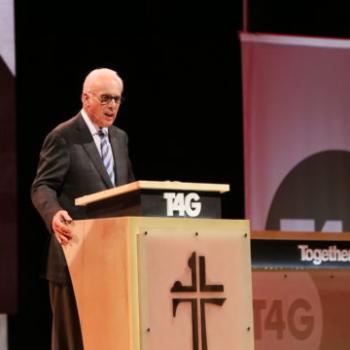This post is part of a series walking through the third volume of Abraham Kuyper’s Common Grace
If the family finds its beginning in creation and nature, instead of from either saving grace or common grace, what then is a “Christian family”?
And we have to be clear here–if the family were the result of particular grace it would fall under the authority of the church. This would reduce freedom and independence–even politically, as we see in history. On the other hand, defending the independence of the family leads to greater freedom politically. And yet a further reflection from that point: when freedom is lost defiance is not the solution. Instead, we should preach a proper view of common grace. We also shouldn’t see the church as good and everything outside of it as evil.
The proper view of “the confession informed by common grace” identifies three realms of life:
- “The realm of sin and evil”–this is the fallen world under the devil;
- “the sacred realm of church life;”
- “the realm of common grace”, which is between the first two and is both good and bad. Within this third category, we find two further phenomena: a) those introduced by common grace; b) those introduced in creation and merely preserved/indirectly influenced by common grace. (347) The family is the most important part of this second category.
From there, we see that family life has three general categories:
- that which sin has twisted into a caricature;
- that which is basically what it should be, but which hasn’t flowered “into a higher form;”
- the sanctified or “Christian family.” (348)
Of these three, 1) is barely human; 2) is common grace; and 3) is particular grace. But! These are not absolute or bounded categories–each family may be shades of all three. That doesn’t mean there are no distinctions, of course. Just as day and dusk and night blend together and yet are distinct, we can recognize all three and see that they blend together.
We can also see all three distinctions both historically and in the present. This cuts across all class and religious lines-even across Christianity. And we can see where this is moving towards another of Kuyper’s unfortunate cultural conclusions. Specifically, Kuyper argues that common grace affects actions, specifically by advancing one culture more and another less. Now, he makes very clear that there are non-Christian cultures that are “more advanced” when it comes to the family, and some Christian cultures that are far behind. And he does not tie this directly to Europe as a superior place over the rest of the world (though he’s obviously biased in its favor). Still, he gives us a hierarchy of cultures that is at the very least uncomfortable to read in the 21st century.
Again, he’s not making a Christian/non-Christian distinction exactly–as we see in 1 Corinthians where the Christian is rebuked for sexual sin and it’s pointed out that even pagans don’t behave that way. This doesn’t mean that Christianity isn’t a blessing and a good influence on the family. The point Kuyper is moving towards is that the family is something apart from our individual salvation. It has a role to play as a type, but has no value beyond this life. As a result, we must live faithfully in this life while remembering that we are living for the next life.
“For the matter of salvation, therefore, we take refuge in particular grace, and for our earthly calling we draw from the resource of common grace.” (353)
These two are going to be somewhat jumbled up in this life, of course, but we have to remember that they are both important.
Dr. Coyle Neal is co-host of the City of Man Podcast an Amazon Associate (which is linked in this blog), and an Associate Professor of Political Science at Southwest Baptist University in Bolivar, MO













